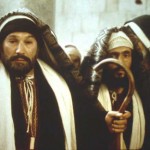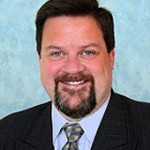by Thomas Brooks
 That Satan labours might and main, which are his messengers and ambassadors, to deceive, delude, and for ever undo the precious souls of men (Acts 20:28-30; 2 Cor. 11:13-15; Eph. 4:14; 2 Tim. 3:4-6; Titus 1:11,12; 2 Peter 2:18,19): “I have seen folly in the prophets of Samaria; they prophesied in Baal, and caused my people Israel to err” (Jer. 23:13). “The prophets make my people to err” (Micah 3:5). They seduce them, and carry them out of the right way into by-paths and blind thickets of error, blasphemy, and wickedness, where they are lost forever. “Beware of false prophets, for they come to you in sheep’s clothing, but inwardly they are ravening wolves” (Mat. 7:15). These lick and suck the blood of souls: “Beware of dogs, beware of evil workers, beware of the concision” (Phil. 3:2). These kiss and kill; these cry, Peace, peace, till souls fall into everlasting flames, Proverbs 7.
That Satan labours might and main, which are his messengers and ambassadors, to deceive, delude, and for ever undo the precious souls of men (Acts 20:28-30; 2 Cor. 11:13-15; Eph. 4:14; 2 Tim. 3:4-6; Titus 1:11,12; 2 Peter 2:18,19): “I have seen folly in the prophets of Samaria; they prophesied in Baal, and caused my people Israel to err” (Jer. 23:13). “The prophets make my people to err” (Micah 3:5). They seduce them, and carry them out of the right way into by-paths and blind thickets of error, blasphemy, and wickedness, where they are lost forever. “Beware of false prophets, for they come to you in sheep’s clothing, but inwardly they are ravening wolves” (Mat. 7:15). These lick and suck the blood of souls: “Beware of dogs, beware of evil workers, beware of the concision” (Phil. 3:2). These kiss and kill; these cry, Peace, peace, till souls fall into everlasting flames, Proverbs 7.
Now, the best way to deliver poor souls from being deluded and destroyed by these messengers of Satan is, to discover them in their colors, that so, being known, poor souls may shun them, and fly from them as from hell itself.
Now you may know them by these characters following:
THE FIRST CHARACTER
False teachers are men-pleasers (Gal. 1:10; 1 Thess. 2:1-4). They preach more to please the ear than to profit the heart: “Which say to the seers, See not; and to the prophets, Prophecy no unto us right things: speak to us smooth things; prophecy deceits”‘ (Isa. 30:10). “A wonderful and horrible thing is committed in the land: the prophets prophesy falsely, and the priests bear rule by their means, and my people love to have it so. And what will you do in the end thereof?” (Jer. 5:30,31). They handle holy things rather with wit and dalliance (playful come-on) then with fear and reverence. False teachers are soul-undoers. They are like evil chirurgeons, that skin over the wound, but never heal it. Flattery undid Ahab and Herod, Nero and Alexander. False teachers are hell’s greatest enrichers. Non acerba, sed blanda, Not bitter, but flattering words do all the mischief, said Valerian, the Roman Emperor. Such smooth teachers are sweet soul-poisoners (Jer. 23:16,17).
THE SECOND CHARACTER
False teachers are notable in casting dirt, scorn, and reproach upon the persons, names, and credits of Christ’s most faithful ambassadors. Thus Korah, Dathan, and Abiram charged Moses and Aaron that they took too much upon them, seeing all the congregation was holy (Num. 16:3). You take too much state, too much power, too much honour, too much holiness upon you; for what are you more than others, that you take so much upon you? And so Ahab’s false prophets fell foul on good Micaiah, paying of him with blows for want of better reasons (1 Kings 22:10-26). Yea, Paul, that great apostle of the Gentiles, had his ministry undermined and his reputation blasted by false teachers: “For his letters”‘ say they, “are weighty and powerful, but his bodily presence is weak and contemptible” (2 Cor. 10:10). They rather contemn him than admire him; they look upon him as a dunce rather than a doctor. And the same hard measure had our Lord Jesus from the Scribes and Pharisees, who laboured as for life to build their own credit upon the ruins of his reputation. And never did the devil drive a more full trade this way than he does in these days (Matt. 27:63). Oh! the dirt, the filth, the scorn that is thrown upon those whom the world is not worthy. I suppose false teachers mind not that saying of Austin, Quisquis volens detrahit famae, nolens addit mercedi meae, He that willingly takes from my good name, unwillingly adds to my reward.
Continue reading →
 We should be careful to be Biblical, to be accurate, factual, on-target, articulate, proportionate, and appropriately concerned for showing that love which has God and His truth first in affection, and man a close second — and which remembers that truth and love are not mutually exclusive.
We should be careful to be Biblical, to be accurate, factual, on-target, articulate, proportionate, and appropriately concerned for showing that love which has God and His truth first in affection, and man a close second — and which remembers that truth and love are not mutually exclusive.
 “The Pharisees’ problem was not that they were too concerned with orthodox teaching, but that they had invented their own orthodoxy. Jesus condemned them for replacing and modifying the clear truth of Scripture with their own traditions (Matthew 15:1-9). They were the chief theological miscreants of their day.
“The Pharisees’ problem was not that they were too concerned with orthodox teaching, but that they had invented their own orthodoxy. Jesus condemned them for replacing and modifying the clear truth of Scripture with their own traditions (Matthew 15:1-9). They were the chief theological miscreants of their day. The vast majority of Pharisees didn’t heed Jesus’ warnings, of course. The smug or snide ones might have even claimed it was because He didn’t “have a relationship based upon love.” It was nonetheless the right thing for Him to correct their false teaching and warn others of the danger posed by their error.”
The vast majority of Pharisees didn’t heed Jesus’ warnings, of course. The smug or snide ones might have even claimed it was because He didn’t “have a relationship based upon love.” It was nonetheless the right thing for Him to correct their false teaching and warn others of the danger posed by their error.” That Satan labours might and main, which are his messengers and ambassadors, to deceive, delude, and for ever undo the precious souls of men (Acts 20:28-30; 2 Cor. 11:13-15; Eph. 4:14; 2 Tim. 3:4-6; Titus 1:11,12; 2 Peter 2:18,19): “I have seen folly in the prophets of Samaria; they prophesied in Baal, and caused my people Israel to err” (Jer. 23:13). “The prophets make my people to err” (Micah 3:5). They seduce them, and carry them out of the right way into by-paths and blind thickets of error, blasphemy, and wickedness, where they are lost forever. “Beware of false prophets, for they come to you in sheep’s clothing, but inwardly they are ravening wolves” (Mat. 7:15). These lick and suck the blood of souls: “Beware of dogs, beware of evil workers, beware of the concision” (Phil. 3:2). These kiss and kill; these cry, Peace, peace, till souls fall into everlasting flames, Proverbs 7.
That Satan labours might and main, which are his messengers and ambassadors, to deceive, delude, and for ever undo the precious souls of men (Acts 20:28-30; 2 Cor. 11:13-15; Eph. 4:14; 2 Tim. 3:4-6; Titus 1:11,12; 2 Peter 2:18,19): “I have seen folly in the prophets of Samaria; they prophesied in Baal, and caused my people Israel to err” (Jer. 23:13). “The prophets make my people to err” (Micah 3:5). They seduce them, and carry them out of the right way into by-paths and blind thickets of error, blasphemy, and wickedness, where they are lost forever. “Beware of false prophets, for they come to you in sheep’s clothing, but inwardly they are ravening wolves” (Mat. 7:15). These lick and suck the blood of souls: “Beware of dogs, beware of evil workers, beware of the concision” (Phil. 3:2). These kiss and kill; these cry, Peace, peace, till souls fall into everlasting flames, Proverbs 7.